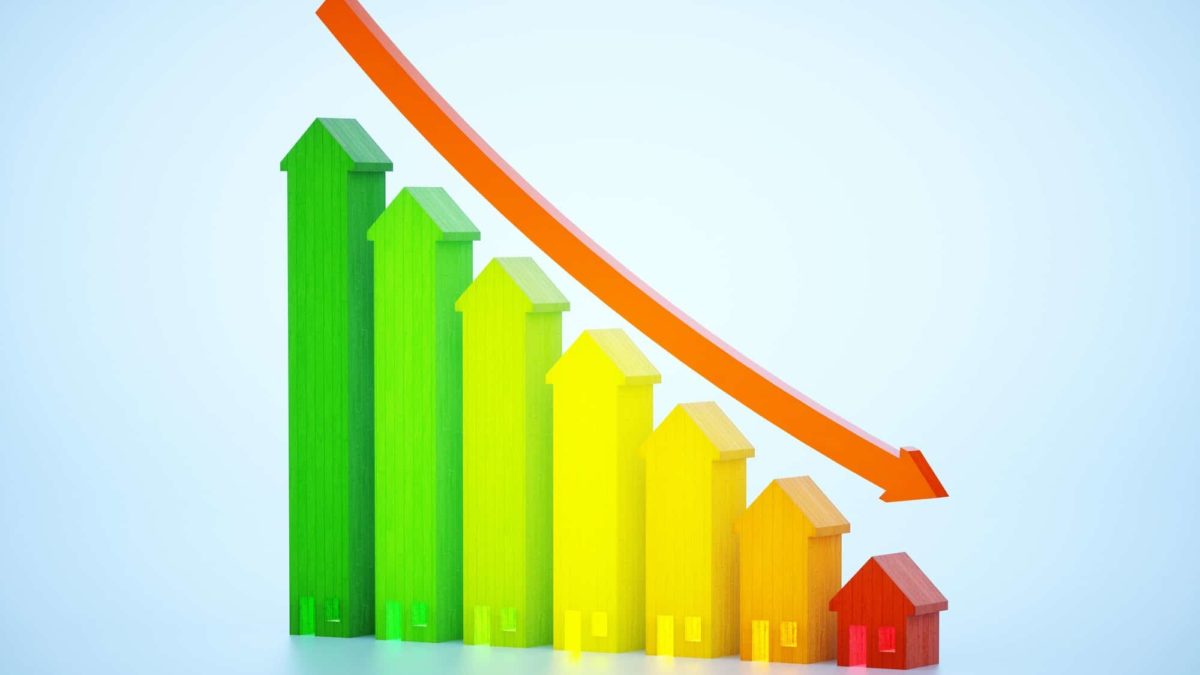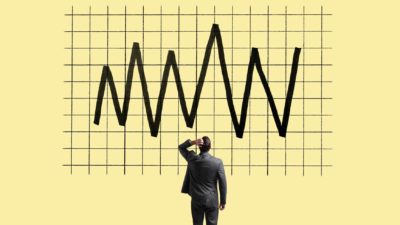Evergrande?
I thought you'd never ask.
Actually, people have been asking me all week.
Gee, we love a disaster story, don't we?
The evolutionary biologists can probably explain it better than I can, but we're drawn to stories of impending doom at an astonishing rate.
Maybe it's the 'them not us' thing.
Maybe it's an evolutionary adaptation to learn from others' mistakes.
Maybe it's the slow-motion train wreck thing: awful, but we can't just look away.
And maybe it's a different expression of the human experience of the pain of loss being three times as impactful, emotionally, as a similar-sized gain… and our fears of a worst-case outcome keep us fixated.
Whatever the case, the potential collapse of Evergrande, a Chinese property developer that's apparently both the second-largest property developer in the world and simultaneously (if not surprisingly) also the most indebted company on Earth, with debts said to amount to some $400 billion.
Cue the headlines.
"China's Lehmann Brothers moment' might be my favourite — not for its accuracy necessarily, but for its ability to strike fear into readers (and presumably more website clicks, were I to be cynical).
Of course, the headline writer could actually be right.
Depending on how this plays out, it could be catastrophic for the world's credit markets.
But probably not.
See, that's the thing about our evolutionary development, as I highlighted above.
No-one can know how bad it will actually be. So the 'worst case scenario' gets trotted out, and grabs people's attention.
(It's the same with those repeated 'House prices could crash by 40%' scares. The report's author then says '… well, I only said it was a chance' by way of defence, thereby getting to make the outlandish claim — and get the headlines — but with plausible deniability when — not if — she's wrong 99 times out of 100.)
Because that's the thing.
If I stopped investing every time someone identified an economic risk, I'd spend 364 days a year in cash.
And that would get me absolutely nowhere.
Those who 'correctly' called the global financial crisis were lionised as visionaries, of course.
But — with the utmost respect to those involved — that's like sending last night's lotto winner on a speaking tour because she correctly forecast the six numbers that were drawn from the barrel.
Now, get the issue, timing and magnitude right twice in a row, and I'll start listening.
Three times, and you might be onto something.
But just once?
Even a broken clock is right twice a day.
And those who were right that once… how long had they been wrong before that?
Remember the disaster waiting to happen from Grexit? From Brexit? The Cypriot banking crisis?
Remember the Chinese 'hard landing' and 'foreign exchange crisis' warnings?
Australian house prices have been 'going to crash' for the last 15 years.
The 'taper tantrum' last year?
The US 'debt ceilings' of a few years ago?
All possible.
All risks.
Just that none ended up actually becoming a problem.
But what about the actual problems?
Who, in 2019, predicted a global pandemic was going to wipe 40% off the ASX in a month and four days?
No-one.
Don't get me wrong — if that sort of foresight was actually possible, it'd be worth a fortune.
It's just, well, not possible.
And yet, many people focus on Evergrande as if it's the end of the world.
Again, let me say — it may well cause massive dislocation.
Just like, against the odds, someone won lotto last night.
But you can't rack up millions of dollars of spending on the basis that you're about to win lotto.
And you can't invest on the assumption that every potential risk ends in disaster, either.
No, I'm not suggesting reckless abandon.
I'm saying that a few things have been historically true:
1. You can find a new reason not to invest every week.
2. The hugely overwhelming majority of those predictions of doom don't come true
3. Of those that do, most are a storm in a teacup
4. The fraction of a fraction that both eventuate and cause meaningful damage are hard to gauge in advance
5. Many of the real doozies aren't foreseen at all; and
6. Despite all of them – every single one – the ASX (and the US market, besides) has never yet failed to regain and surpass previous highs
Or, you know, you can listen to the Chicken Littles, stay in cash, and miss out on the stunning potential returns from investing (9.7%, per annum, on the ASX over the last 30 years, according to Vanguard, for context)!
I know the doom and gloom mob are persuasive. I know their predictions (sorry 'worst case possibilities') are scary.
But that 30 year return is despite everything that's happened since 1991, not some 30 year period of sweetness and light.
Yes, you need to invest sensibly.
You need to:
– Work hard
– Save religiously
– Invest regularly
– Buy wisely
– Diversify appropriately
And you need to expect volatility.
I can make no promises, and I can't offer you a comfortable ride.
But my expectation is that handsome — very handsome — long term compound returns await those who can put the market's growth potential to work in their portfolios, just as the long term historical returns have generated significant wealth for those who did the same thing, 30 years ago.
So, Evergrande?
Well, let's just say the ASX fell 2.1% on Monday in a mini-panic.
And since then?
Well, the S&P/ASX 200 Index (ASX: XJO) had made up all but 0.5% of that fall by the end of yesterday.
Of course a few days or a week are nothing.
My point is that panicking didn't exactly help.
I have no informed speculation on what happens with Evergrande. Maybe it's just like the other 99% of crises that, well, never happen.
Or maybe it's one of the rare ones that eventuates.
History suggests that remaining invested in the face of potential crises is more profitable than freaking out every time someone yells 'watch out'.
So, I'm going to continue my put my investment strategy into place.
I'm going to save and invest, in a sensibly diversified way, in businesses with outsized potential, knowing that sometimes I'll be the windscreen and sometimes I'll be the bug… but believing that such a strategy will get me where I want to go.
Fool on!









